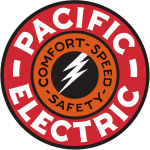Santa Ana–Huntington Beach Line
| Santa Ana–Huntington Beach | |||||||||||||||||||||||||||||||||||||||||||||||||||||||||||||||||||||||||||||||||||||||||||||||||||||||||||||||||||||||||||||||||||||||||||||||||||||||||||||||||||||||||||||||||||||||||||||||||||||||||||||||||||||||||||||||||||||||||||||||||||||||||||||||||||||||||||||||||||||||||
|---|---|---|---|---|---|---|---|---|---|---|---|---|---|---|---|---|---|---|---|---|---|---|---|---|---|---|---|---|---|---|---|---|---|---|---|---|---|---|---|---|---|---|---|---|---|---|---|---|---|---|---|---|---|---|---|---|---|---|---|---|---|---|---|---|---|---|---|---|---|---|---|---|---|---|---|---|---|---|---|---|---|---|---|---|---|---|---|---|---|---|---|---|---|---|---|---|---|---|---|---|---|---|---|---|---|---|---|---|---|---|---|---|---|---|---|---|---|---|---|---|---|---|---|---|---|---|---|---|---|---|---|---|---|---|---|---|---|---|---|---|---|---|---|---|---|---|---|---|---|---|---|---|---|---|---|---|---|---|---|---|---|---|---|---|---|---|---|---|---|---|---|---|---|---|---|---|---|---|---|---|---|---|---|---|---|---|---|---|---|---|---|---|---|---|---|---|---|---|---|---|---|---|---|---|---|---|---|---|---|---|---|---|---|---|---|---|---|---|---|---|---|---|---|---|---|---|---|---|---|---|---|---|---|---|---|---|---|---|---|---|---|---|---|---|---|---|---|---|---|---|---|---|---|---|---|---|---|---|---|---|---|---|---|---|---|---|---|---|---|---|---|---|---|---|---|---|---|---|---|---|---|
| Overview | |||||||||||||||||||||||||||||||||||||||||||||||||||||||||||||||||||||||||||||||||||||||||||||||||||||||||||||||||||||||||||||||||||||||||||||||||||||||||||||||||||||||||||||||||||||||||||||||||||||||||||||||||||||||||||||||||||||||||||||||||||||||||||||||||||||||||||||||||||||||||
| Locale | Orange County, California | ||||||||||||||||||||||||||||||||||||||||||||||||||||||||||||||||||||||||||||||||||||||||||||||||||||||||||||||||||||||||||||||||||||||||||||||||||||||||||||||||||||||||||||||||||||||||||||||||||||||||||||||||||||||||||||||||||||||||||||||||||||||||||||||||||||||||||||||||||||||||
| Termini | Santa Ana Huntington Beach | ||||||||||||||||||||||||||||||||||||||||||||||||||||||||||||||||||||||||||||||||||||||||||||||||||||||||||||||||||||||||||||||||||||||||||||||||||||||||||||||||||||||||||||||||||||||||||||||||||||||||||||||||||||||||||||||||||||||||||||||||||||||||||||||||||||||||||||||||||||||||
| Service | |||||||||||||||||||||||||||||||||||||||||||||||||||||||||||||||||||||||||||||||||||||||||||||||||||||||||||||||||||||||||||||||||||||||||||||||||||||||||||||||||||||||||||||||||||||||||||||||||||||||||||||||||||||||||||||||||||||||||||||||||||||||||||||||||||||||||||||||||||||||||
| Type | Interurban | ||||||||||||||||||||||||||||||||||||||||||||||||||||||||||||||||||||||||||||||||||||||||||||||||||||||||||||||||||||||||||||||||||||||||||||||||||||||||||||||||||||||||||||||||||||||||||||||||||||||||||||||||||||||||||||||||||||||||||||||||||||||||||||||||||||||||||||||||||||||||
| System | |||||||||||||||||||||||||||||||||||||||||||||||||||||||||||||||||||||||||||||||||||||||||||||||||||||||||||||||||||||||||||||||||||||||||||||||||||||||||||||||||||||||||||||||||||||||||||||||||||||||||||||||||||||||||||||||||||||||||||||||||||||||||||||||||||||||||||||||||||||||||
| Operator(s) | |||||||||||||||||||||||||||||||||||||||||||||||||||||||||||||||||||||||||||||||||||||||||||||||||||||||||||||||||||||||||||||||||||||||||||||||||||||||||||||||||||||||||||||||||||||||||||||||||||||||||||||||||||||||||||||||||||||||||||||||||||||||||||||||||||||||||||||||||||||||||
| History | |||||||||||||||||||||||||||||||||||||||||||||||||||||||||||||||||||||||||||||||||||||||||||||||||||||||||||||||||||||||||||||||||||||||||||||||||||||||||||||||||||||||||||||||||||||||||||||||||||||||||||||||||||||||||||||||||||||||||||||||||||||||||||||||||||||||||||||||||||||||||
| Opened | 1907 | ||||||||||||||||||||||||||||||||||||||||||||||||||||||||||||||||||||||||||||||||||||||||||||||||||||||||||||||||||||||||||||||||||||||||||||||||||||||||||||||||||||||||||||||||||||||||||||||||||||||||||||||||||||||||||||||||||||||||||||||||||||||||||||||||||||||||||||||||||||||||
| Closed | March 1922 | ||||||||||||||||||||||||||||||||||||||||||||||||||||||||||||||||||||||||||||||||||||||||||||||||||||||||||||||||||||||||||||||||||||||||||||||||||||||||||||||||||||||||||||||||||||||||||||||||||||||||||||||||||||||||||||||||||||||||||||||||||||||||||||||||||||||||||||||||||||||||
| Technical | |||||||||||||||||||||||||||||||||||||||||||||||||||||||||||||||||||||||||||||||||||||||||||||||||||||||||||||||||||||||||||||||||||||||||||||||||||||||||||||||||||||||||||||||||||||||||||||||||||||||||||||||||||||||||||||||||||||||||||||||||||||||||||||||||||||||||||||||||||||||||
| Line length | 13.31 mi (21.42 km) | ||||||||||||||||||||||||||||||||||||||||||||||||||||||||||||||||||||||||||||||||||||||||||||||||||||||||||||||||||||||||||||||||||||||||||||||||||||||||||||||||||||||||||||||||||||||||||||||||||||||||||||||||||||||||||||||||||||||||||||||||||||||||||||||||||||||||||||||||||||||||
| Track gauge | 1,435 mm (4 ft 8+1⁄2 in) standard gauge | ||||||||||||||||||||||||||||||||||||||||||||||||||||||||||||||||||||||||||||||||||||||||||||||||||||||||||||||||||||||||||||||||||||||||||||||||||||||||||||||||||||||||||||||||||||||||||||||||||||||||||||||||||||||||||||||||||||||||||||||||||||||||||||||||||||||||||||||||||||||||
| Electrification | 600 V DC Overhead lines | ||||||||||||||||||||||||||||||||||||||||||||||||||||||||||||||||||||||||||||||||||||||||||||||||||||||||||||||||||||||||||||||||||||||||||||||||||||||||||||||||||||||||||||||||||||||||||||||||||||||||||||||||||||||||||||||||||||||||||||||||||||||||||||||||||||||||||||||||||||||||
| |||||||||||||||||||||||||||||||||||||||||||||||||||||||||||||||||||||||||||||||||||||||||||||||||||||||||||||||||||||||||||||||||||||||||||||||||||||||||||||||||||||||||||||||||||||||||||||||||||||||||||||||||||||||||||||||||||||||||||||||||||||||||||||||||||||||||||||||||||||||||
The Santa Ana–Huntington Beach Line is a former Pacific Electric interurban railway line in Orange County, California. Unlike most of the company's services, trains did not travel to Downtown Los Angeles and instead provided a suburban service between Santa Ana and Huntington Beach, for a time running as far as Balboa.
History[]
The line was constructed by the Pacific Electric Land Company in 1907;[1] the company existed solely to build and lease lines for Pacific Electric to operate. Several spur lines were constructed to transport sugar beets from farms near the route. The line came under full ownership of PE in 1911, two weeks following the Great Merger.[2]
The service was truncated to terminate at Huntington Beach in the south starting on October 15, 1912.[3] As a result of the 1918 Spanish flu pandemic, frequencies were reduced to a single daily round trip starting on October 27 of that year.[3] In November 1921, a second round trip was added, but this was short lived as service was discontinued outright by the following March due to a bridge on the route being damaged in a flood.[3] The line was formally abandoned on January 30, 1931.[2]
The establishment of the Santa Ana Army Air Base in 1942 brought about demand by the government for direct rail service. As a result, PE built a single-track line which was owned by the government. No passenger service was provided; freight was exchanged at Greenville.[1]
By mid-1948, Pacific Electric had purchased the requisite Southern Pacific Railroad lines to allow them to move freight to Newport and Huntington without the trip through Long Beach and Sunset Beach.[2]
Route[]
Leaving the Santa Ana Pacific Electric Depot, cars ran south on Maple Street to New Delhi, where a couple of branch lines met the main tracks and turned to the southwest for about a mile before continuing west, paralleling Alton Avenue. The line crossed the Santa Ana River, continuing until Bushard Street to turn south into Huntington Beach.
A segment of the right of way west from the former Dyer spur is used as the Union Pacific Santa Ana Industrial Lead. The north–south segment in Santa Ana paralleling Rousselle and Maple was partially rebuilt as a rail trail.
Stations[]
| Station | Mile[2] | Major connections | Opened | Service discontinued |
|---|---|---|---|---|
| Santa Ana | 0 | Santa Ana, Santa Ana–Orange | 1922 | |
| New Delhi | 2.69 | 1907 | 1922 | |
| Acelga | 5.60 | 1907 | 1922 | |
| Talbert | 8.16 | 1907 | 1922 | |
| Bushard | 10.53 | 1907 | 1922 | |
| Huntington Beach | 13.31 | Balboa, Huntington Beach–La Bolsa | 1922 | |
| Newport Beach | 1912 | |||
| Balboa | 1912 | |||
References[]
- ^ a b
 One or more of the preceding sentences incorporates text from this source, which is in the public domain: California Department of Transportation. 1981 Inventory of Pacific Electric Routes (PDF). Los Angeles County Metropolitan Transportation Authority. pp. 139–141.
One or more of the preceding sentences incorporates text from this source, which is in the public domain: California Department of Transportation. 1981 Inventory of Pacific Electric Routes (PDF). Los Angeles County Metropolitan Transportation Authority. pp. 139–141.
- ^ a b c d "Santa Ana-Huntington Beach Line". Electric Railway Historical Association of Southern California. Retrieved 14 January 2021.
- ^ a b c Veysey, Laurence R. (June 1958). A History Of The Rail Passenger Service Operated By The Pacific Electric Railway Company Since 1911 And By Its Successors Since 1953 (PDF). LACMTA (Report). Los Angeles, California: Interurbans. pp. 74, 75. ASIN B0007F8D84.
- Pacific Electric routes
- Light rail in California
- Railway lines opened in 1907
- 1907 establishments in California
- Railway services discontinued in 1922
- 1922 disestablishments in California
- Closed railway lines in the United States
- Railway lines closed in 1931
